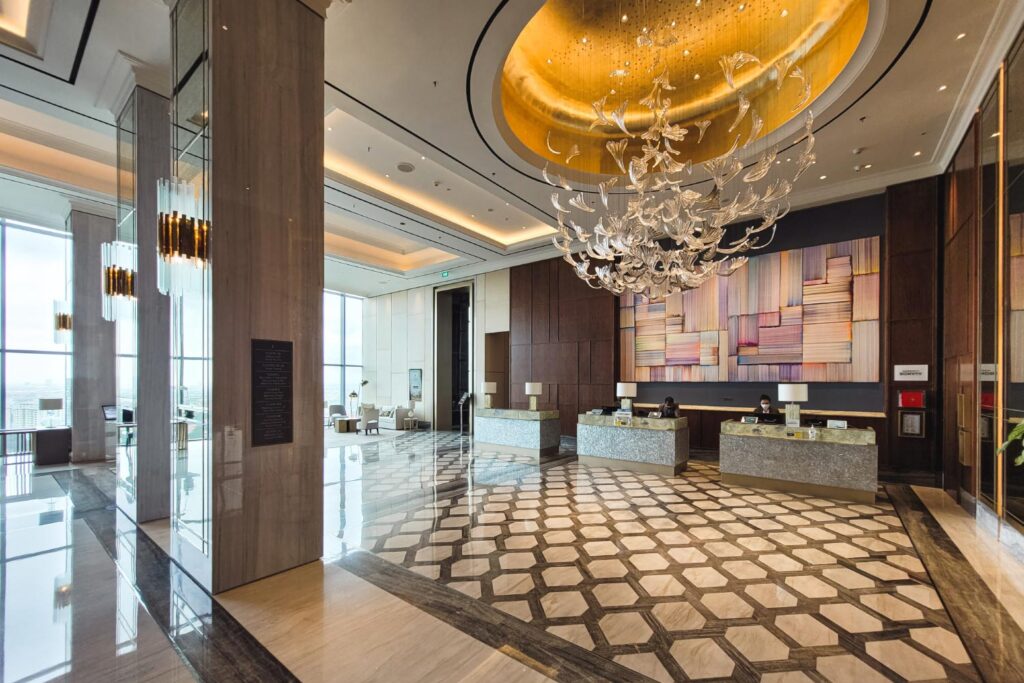
Beyond Hotel Ownership: A Guide to Sustainable Hotel Investment
by: Regawa Paramasiddi
Will Brand Names Guarantee Hotel Profits?
The attractiveness of hotel ownership is powerful. One can easily envision a beautiful hotel property, a constant flow of international guests, and maybe even a hint of prestige. However, transforming this dream into reality requires more than just a beautiful property and constant flow of guests. Effective hotel investment demands strategic thinking and decisive decision-making from owners.
While a significant investment can create a stunning hotel property in a sought-after location, the long-term success of a hotel hinges on its financial performance. For most owners, the dream of a thriving hotel eventually will transform into the need for sustained financial returns. This is why partnering with a Hotel Management Companies (HMC) holds such appeal. The common expectation being that a branded hotel chain delivers better financial success.
HMCs entice hotel owners with the appeal of a powerful brand name. They paint a picture of global recognition, captive booking, and a seamlessly integrated management system – all leading to the ultimate prize of a highly successful hotel. These are the ambitions most hotel owners come to prioritize, promises often delivered with captivating presentations and unwavering confidence from these hospitality corporates. Still, beneath the glamorous facade lies a network of hidden costs that can erode profits.
The Reality Behind Hotel Branding
Many hotel owners understand the presence of base and incentive fees – a percentage of revenue and gross operating profit (GOP) that flow to the hotel management company. But the initial setup fees and various costs for intricate marketing, financial, and HR systems can quickly accumulate and become a hidden surprise. As if that weren’t enough, there are often additional global or regional bills that are shared amongst their network of hotel properties.
When the true picture emerges, a hotel owner might be facing a sobering reality: more than 10% of the revenue is diverted in fees and various brand-mandatory costs, regardless of the hotel’s profitability. Worse yet, terminating Hotel Management Agreements (HMAs) can be an uphill battle for property owners, with extrication proving highly difficult.

So why is terminating HMA difficult? For the hotel chains, it’s all about scale. The more properties managed under their umbrella, the greater their reach and revenue stream. Brand presence in a particular region is also a crucial consideration for them. Unsurprisingly, they’ll put up a strong fight to maintain HMAs, securing a steady flow of income and upholding their regional brand identity. That is, unless the property owner is willing to part with a certain sum of money as a termination fee, to cover the losses of potential income that the HMC feel they should be getting from continued operations.
Modern-day HMCs, with their intense focus on global expansion and protecting their brand image, may not always align with the financial objectives of the owner. For some owners, independent operation offers an alternative path, allowing for greater control over brand identity and potentially higher profits. However, this path demands strong industry knowledge, meticulous management, and a robust marketing strategy to compete with established brands. This is where white-label management companies emerge as a viable alternative. They offer operational expertise while allowing owners to retain control of their brand identity, ensuring alignment with their vision and target market.
Nonetheless, managing a successful hotel is no easy feat. It demands meticulous control over guest experience, operations, and finances. If a property owner isn’t prepared to become a hands-on General Manager and start tackling these day-to-day challenges, then outsourcing this expertise comes at a hefty price.
The Financial Crossroads of Hotel Development
The journey of a hotel owner begins well before welcoming the first guest. One of the crucial phases is in the early decision-making, where the core purpose of the property is established. Do they envision a profitable hotel business that generates significant financial returns? Or perhaps an architectural icon that keeps being featured in travel publications around the world? Identifying this core purpose is the cornerstone upon which all future decisions rest.
The path to profitability and the path to prestige could diverge dramatically. A prestigious landmark, designed with exceptional materials and boasting premium finishes, will inevitably see its development budget balloon. On the other hand, prioritizing financial returns allows for a more cost-effective construction phase, ensuring manageable debt repayments even in unforeseen market downturns.
A luxury hotel that is a gleaming landmark might not necessarily struggle to secure substantial loans. However, the challenge lies in repaying them. The sheer cost of high-quality materials and construction can make repayments difficult, especially in the early years of operation.

The secret to success lies in striking a delicate balance. Owners must reconcile their aspirations – the dream of a trophy property or the desire for robust financial returns – with the site potential and the realities of the market. This careful consideration, undertaken during the planning stages, paves the way for a hotel that can look stunning but still thrives in the competitive travel landscape.
Market analysis becomes a vital compass, guiding the hotel’s course from conception to operation. While a unique selling proposition can be a powerful advantage, understanding the competitive landscape and the hotel’s position within it is paramount. Comprehension on the ideal target clientele might influence room size and interior design (think elegant day beds for a mid-up segment families vs working desk for business travelers). Will it target upscale market or luxury market? Will it compete head-to-head with similar establishments on price, or carve a niche for a different clientele entirely? These factors heavily influence financing strategies, particularly in the crucial early stages. For instance, a luxurious hotel development in a new tourism destination, where market demand is still limited, would likely have a longer payback period and therefore should refrain from obtaining large debt portion from the bank and push for larger equity portion instead.
Choosing the Right Brand for Your Property
Building a successful partnership between a hotel property and a hotel brand requires careful consideration, much like a good marriage. Compatibility, shared values, and a clear understanding of what each brings to the table are crucial. While most global hotel brands have similar strengths such as global brand recognition, robust reservation system, and loyal clienteles, some brands specialize in specific guest demographics like millennial lifestyle travelers or eco-conscious tourists. It is important to understand the positioning of each hotel brand that an HMC may offer, to avoid any mismatch. Imagine a trendy boutique hotel struggling to meet the rigid operational standards of a generic hotel chain. Similarly, a high-end property might realize its chosen hotel brand lacks the market recognition it craved from luxury travelers.

(Photo: Moxy Bandung – Marriott Group)
Choosing the wrong brand can trigger a chain reaction, impacting everything from guest demographics, occupancy rates, room rates, to the overall profitability. A mismatch in brand and cost expectations can be a recipe for financial disaster. However, this risk can be mitigated with careful planning, budget control, and strategic approach to brand selection. Ultimately, the hotel owner holds the responsibility for the success in hotel investment and brand selection.
Here are some final considerations for hotel owners:
- Conduct thorough research on potential HMC partners, down to their specific brands. Understand their target markets, operational philosophies, and fee structures.
- Don’t be afraid to negotiate terms that are favorable to your specific property and goals.
- Prepare for additional investments. Early operational years could still require additional investments to support weak returns and negative cash flows, so make sure you don’t overspend in construction.
- Seek professional guidance from hospitality consultants if needed.
While partnering with an HMC offers significant advantages, independent operation can be a viable alternative for some owners who possess strong industry knowledge and a robust marketing strategy. This path allows for greater control over brand identity and potentially higher profits, but also demands significant investment of time and resources.
By carefully evaluating these factors and taking a proactive approach, hotel owners can make informed decision on brand selection or explore alternative paths, propelling their property towards long-term success.